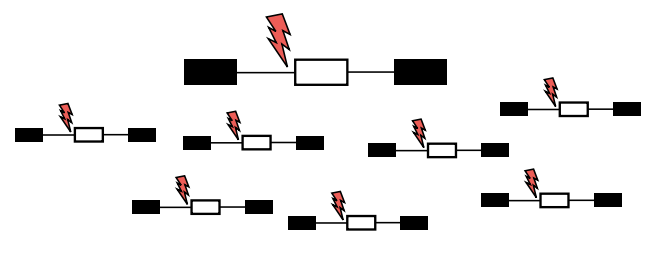
High-throughput functional screen of skipped exons contributing to lung cancer development
Engineering
Brooks Lab, Biomolecular Engineering
RNA splicing is the process by which intronic(non-coding) regions are removed from pre-mRNA to produce mature mRNA. Alternative RNA splicing serves as a mechanism for greater proteome and transcriptome diversity, as multiple distinct mRNA transcripts can be yielded from the same gene locus. Dysregulation of alternative splicing is understood to contribute to the development of human cancers, but identifying specific splicing events contributing to tumorigenesis has been a major challenge for researchers. Previous studies have identified and characterized an oncogenic (cancer causing) alternative splicing event in the MET proto-oncogene. Patients with MET exon 14 skipping events have been found to respond favorably to crizotinib, a MET inhibitor. Identifying aberrant splicing events that are driving tumor development has the potential to lead to newer and more personalized therapeutic options for patients.
To better understand the potential of aberrant splicing to drive tumorigenesis, the laboratory of Dr. Angela Brooks is developing a high-throughput screen to assay the oncogenic potential of exon skipping events across the human genome. Skipping of candidate exons will be induced using the CRISPR/Cas9 gene editing in primary lung cell lines (AALE), and then in vitro and in vivo functional assays will be used to measure the oncogenic potential of each exon skipping event. Through a computational analysis of DNA and RNA sequencing data of 495 lung adenocarcinoma patients, 794 putative oncogenic exon skipping events were selected as screen candidates. Candidate exon skipping events were selected based on an association with characterized splicing factor mutations, somatic splice site alterations, or an enrichment in driver negative patients. Candidate exon skipping events of highest interest were found in genes present in the RasMAPK pathway, a frequently altered pathway in lung cancer.